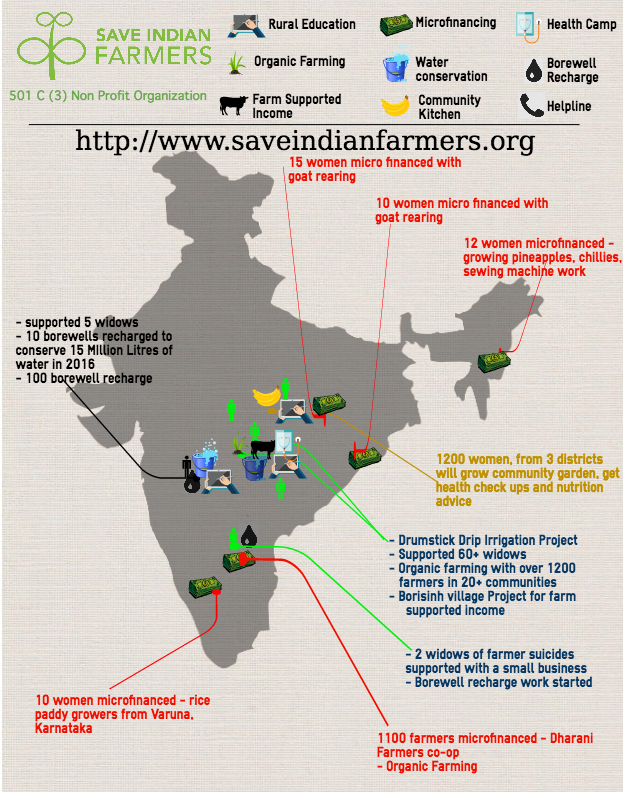Women and children constitute nearly 2/3rds of the population of India. This segment is biologically, psychologically and culturally vulnerable to a host of diseases. But most of the ill health is predictable and preventable through timely information, education and effective communication.
The Health Camp conducted for women at Yavatmal district aimed at reaching out to at-risk tribal women and wives of farmers who had committed suicide. 385 women from 41 small villages benefitted from this camp
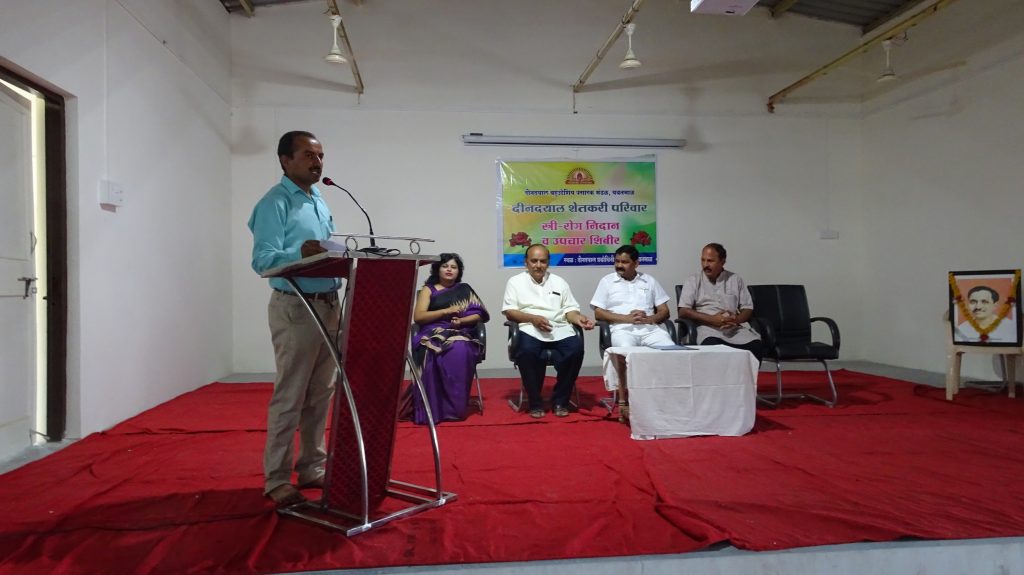
A complete package of health services was provided, specifically addressing the needs of adolescent girls and women in the age group from 15 to 55 years. The program included a Powerpoint presentation explaining various diseases, disorders, preventative measures and available treatments. This made a huge visual impact on the participants.
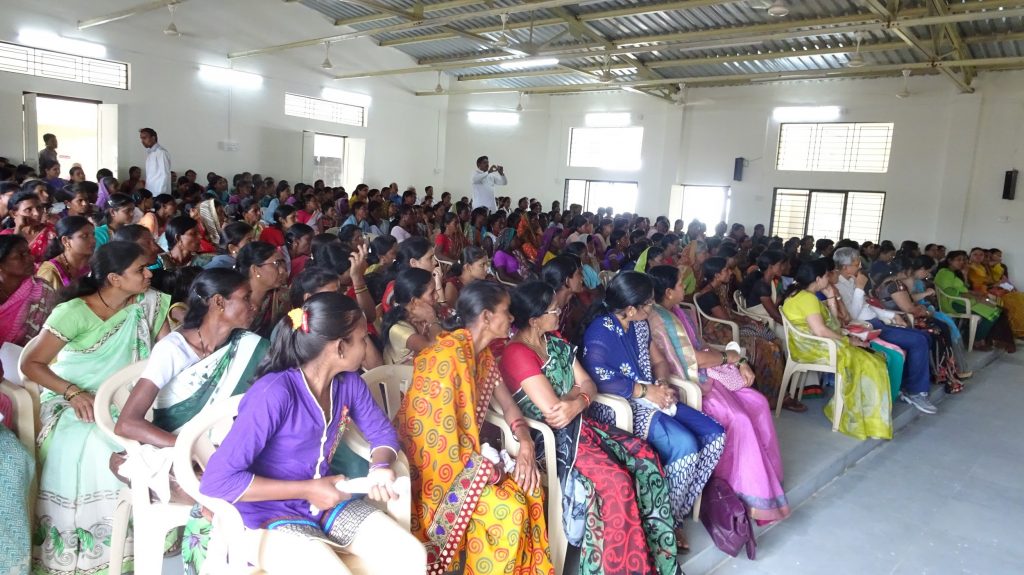
The various tests conducted for all the attendees include:
- Hemogram to estimate hemoglobin level and detect any infections.
- Blood sugar level for detection of diabetes.
- TSH for evaluating the presence of thyroid disorders.
- Bone mineral density for analysing osteoporosis.
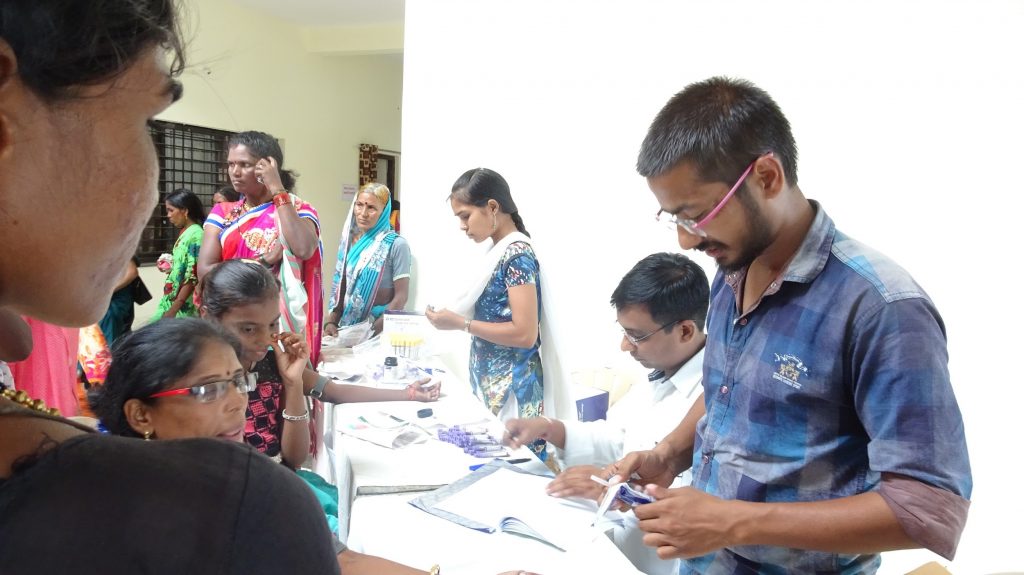
Mammography and pap smears were performed for patients who had related signs & symptoms. Similarly, breast and pervaginal examination were done for required individuals. Gynaecological as well as other medical history information was discussed individually with each patient. Any necessary medication was distributed without any charge to those who needed it. Women complaining of issues in the pelvic area were advised ultrasonography.
The specific health care awareness items that were discussed include:
- Prevailing health problems and methods to prevent and control the same.
- The importance of proper nutritious food that is also cost effective and easily available.
- Adequate supply of safe drinking water and environmental sanitation.
- Maternal and child health, including family planning.
- Importance of immunization against major diseases.
- Access to primary health centres for treatment of common ailments and prescription drugs.
Often, in this environment, a female child is not given proper care and attention. And if a girl is born to parents who already have one or more daughters, she may be completely neglected. Given this context, it was extremely important to draw their attention to the journey of a woman’s body from birth through puberty until menopause. The importance of vaccination, nutrition and healthy habits through all stages of change was explained to them.
Adolescent girls go through a critical period of physical and psychological change before they attain complete maturation. Their incomplete understanding of this difficult phase was augmented and their misconceptions addressed. They were educated clearly about the onset of the menstrual cycle, normal and abnormal symptoms during their periods, and the importance of personal hygiene and adequate nutrition. They were encouraged to continue their education and only marry after they attained the age of 18.
For slightly-older women, I talked about concerns around trying to conceive, when doctors consider a couple infertile and when it is necessary to visit a doctor. For pregnant women, I stressed upon the importance of antenatal visits, iron and calcium supplements, Tetanus injections and hospital delivery. I also weighed upon matters like absolute breastfeeding, spacing of births and birth control by using contraceptives, which are freely available at primary health centres and family planning centers.
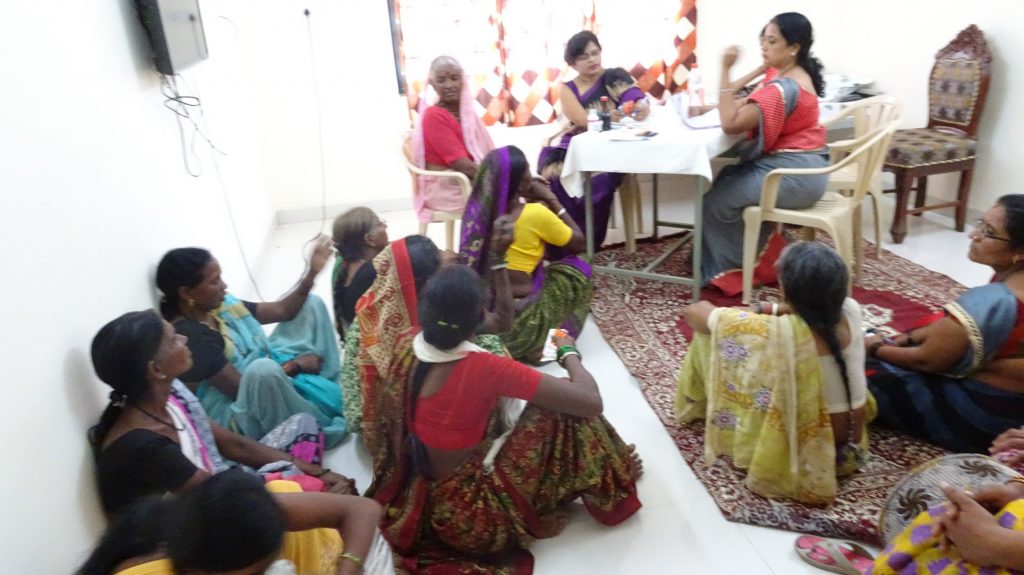
In middle-aged women, I noticed nutritional deficiencies leading to anemia and lower immunity as a result of their ignorance and neglect for self-care. Some of them demonstrated a psychological inability to cope with stress and diseases, leading to depression-like symptoms. Medical conditions that are on the rise in women like breast and cervical cancers, thyroid disorders, diabetes, osteoporosis and menstrual irregularities were highlighted. I stressed upon the importance of getting regular health check-ups.
The graph below shows the test statistics for the 385 women who attended the health check-up. A total of 300 of them were diagnosed with the mentioned disorders. We are treating these patients free-of-charge and will continue to do so until their conditions stabilize.

Mr. Kadre, Dr. Pandey & team and Deendayal were very cooperative and had organised everything required for the camp at the site very well, which made the day a successful event.
___________________________________________________________________________________________________
About the Author
Dr.Manjusha Ghumare is a gynaecologist who has been practicing for the last 18 years in Pune. She also has experience in reproductive endocrinology for 9 years. She is particularly interested in educating women on reproductive health, nutrition, lifestyle and hygiene. She conducts awareness programs, including talks, presentations and free-of-charge testing for women of all ages in rural and urban areas




